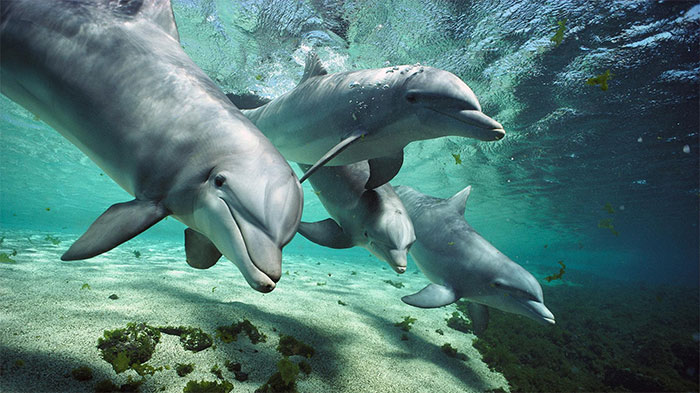Antibiotics are resistant to ... dolphins
Dolphins in the wild are seriously affected by antibiotic-resistant bacteria, which is thought to only occur in humans.
In a new study published in the journal Aquatic Mammals, scientists at the University of Florida Atlantic (USA) said they studied wild dolphins in the area of the Indian River, Florida during the 2003 period. -2015.

Dolphins contain high antibiotic resistance bacteria, which often occur in people who take a lot of antibiotics.
The scientists collected about 733 types of bacteria from 171 dolphins in the area to analyze the antibiotic resistance index for each different pathogen.
As a result, 88.2% of 733 types of bacteria examined were resistant to at least one antibiotic, including 91.6% of erythromycin resistance, 77.3% of ampicillin- resistant type and 61.7 % cephalothin resistance type . The infection rate of these antibiotic-resistant bacteria has been increasing in dolphin populations over 13 years of research.
In particular, the number of dolphins containing high antibiotic-resistant bacteria was recorded mainly in places where humans used a lot of antibiotics.
Scientists suspect that some antibiotics can follow human activities directly into rivers, or indirectly through the soil environment, and then affect aquatic animals.
In the past, people used to be infected with the main antibiotic-resistant bacteria in the medical environment, but this does not eliminate the risk of being affected by river, sea . like dolphins. Even people who like to eat raw seafood should be alert because there is a risk of being affected by antibiotic-resistant bacteria that parasitize marine animals.
- Bad habits of parents hurt the liver and kidneys, endanger children
- The world is depleted of new generation antibiotics
- Is it not necessary to take an adequate dose of antibiotics?
- What are antibiotics and classify antibiotics
- Bacterial alarms resistant to many antibiotics
- 'Heavenly' facts about antibiotics
- 7 principles when using antibiotics
- Bacteria resistant to two types of prophylactic antibiotics have been found in the United States
- G8 discusses how to fight doctors
- Abuse antibiotics to make resistant bacteria
- Find a mechanism to help bacteria not only resist but also antibiotics
- 7 mistakes we often make when talking about antibiotics
 Why do potatoes have eyes?
Why do potatoes have eyes? 'Tragedy' the world's largest carnivorous life: Death becomes ... public toilet
'Tragedy' the world's largest carnivorous life: Death becomes ... public toilet Tomatoes were once considered 'poisonous' for 200 years
Tomatoes were once considered 'poisonous' for 200 years Detecting microscopic parasites on human face
Detecting microscopic parasites on human face